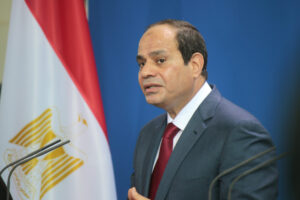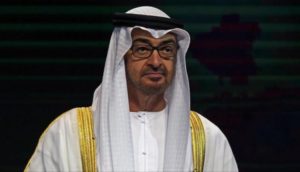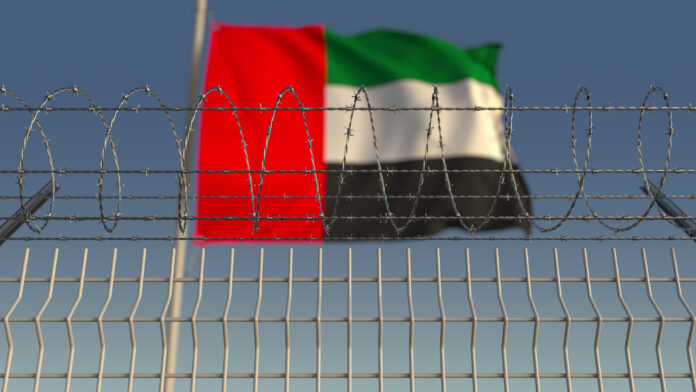The United Arab Emirates has added 11 individuals and eight UK-based entities to its ‘terror list’ over alleged Muslim Brotherhood ties.
The decision is part of a broader effort to combat what the UAE calls “terrorism financing.”
According to the state-run WAM news agency, the UAE aims to dismantle networks associated with “extremist activities.”
The eight UK-based organisations added to the UAE’s list include a mix of educational, charitable, and community-focused institutions. Among them are:
- Cambridge Education and Training Centre Ltd
- IMA6INE Ltd
- Wembley Tree Ltd
- Waslaforall
- Future Graduates Ltd
- Yas for Investment and Real Estate
- Holdco UK Properties Limited
- Nafel Capital
These entities have been flagged for their alleged ties to the Muslim Brotherhood, a political and religious movement regarded by the UAE as a terrorist organisation since 2014.
However, these groups are neither banned in the UK nor classified as terrorist organisations under British law.
The following people have been added to the list:
Subscribe to our newsletter and stay updated on the latest news and updates from around the Muslim world!
- Yousef Hassan Ahmed Al-Mulla – Current nationality: Sweden, previous nationality: Liberia
- Saeed Khadim Ahmed bin Touq Al Marri – Turkey/UAE
- Ibrahim Ahmed Ibrahim Ali Al Hammadi – Sweden/UAE
- Ilham Abdullah Ahmed Al Hashimi – UAE
- Jasem Rashid Khalfan Rashid Al Shamsi – UAE
- Khaled Obaid Yousuf Buatabh Al Zaabi – UAE
- Abdulrahman Hassan Munif Abdullah Hassan Al Jabri – UAE
- Humaid Abdullah Abdulrahman Al Jarman Al Nuaimi – UAE
- Abdulrahman Omar Salem Bajbair Al Hadrami – Yemen
- Ali Hassan Ali Hussein Al Hammadi – UAE
- Mohammed Ali Hassan Ali Al Hammadi – UAE
Context
The Muslim Brotherhood, founded in Egypt in 1928, is one of the most influential Islamic movements in the world with a significant presence in various Arab countries.
In 2012, the movement gained international attention when its candidate, Mohamed Morsi, won Egypt’s first democratic presidential election.
However, Morsi was ousted in a military coup the following year, which led to the authoritarian rule of current President Abdel Fattah al-Sisi.

Editorial credit: 360b / Shutterstock.com
The UAE has been a staunch supporter of Sisi’s regime and has taken a hard-line stance against the Muslim Brotherhood and its affiliates.
The UAE first designated the Muslim Brotherhood as a terrorist group in 2014, following the arrest of individuals linked to the movement, commonly referred to as the “UAE94.”
This group comprised activists and reformists accused of plotting against the state.
The inclusion of UK-based entities on the UAE’s terror list reflects its continued efforts to target organisations and individuals it perceives as threats to regional stability.
This is not the first instance of the UAE attacking Muslim organisations in the UK. The UAE pushed for the 2015/6 Muslim Brotherhood “review” by the then British government.
Around that time, it was also revealed that the UAE paid a London-based public relations firm millions of pounds to lead attacks in the UK against Qatar, the Muslim Brotherhood, and other opponents of the Gulf state.
Reactions
The UAE’s decision to list prominent humanitarian and educational organisations, such as Islamic Relief Worldwide, has drawn criticism from human rights advocates and political analysts.
Islamic Relief Worldwide is a globally recognised charity providing aid in over 40 countries and has denied any links to extremist groups.
In a 2019 statement titled “Response to Allegations of Links to the Muslim Brotherhood,” the IRW declared: “We categorically denied what was an unfounded and hugely damaging allegation linking Islamic Relief to terrorism. Despite our attempts to engage the UAE authorities we have not been provided with any evidence to help us understand or substantiate this assertion.”
In the UK, the organisations on the list have not faced legal action or scrutiny from British authorities for alleged terrorism-related activities.
The UAE’s crackdown on alleged Brotherhood affiliates is part of a broader regional campaign.

Earlier this week, the Lebanese government decided to extradite Abdul Rahman al-Qaradawi, the son of the late cleric Yusuf al-Qaradawi, to the UAE.
Abdul Rahman, of Egyptian origin, was detained in Lebanon in late December after returning from Syria.
His pending deportation has sparked criticism from human rights organisations, which argue that it violates international law.
Abdul Rahman’s detention and extradition request come amid accusations of his ties to the Muslim Brotherhood.
In a recent video filmed at the Umayyad Mosque in Syria, he expressed support for the Syrian uprising while criticising regional governments, including the UAE.
His case underscores the broader geopolitical dynamics surrounding the Muslim Brotherhood and the UAE’s attempts to curtail its influence. While the UAE asserts that these measures are necessary to ensure security and stability, critics argue that the terror list could suppress legitimate humanitarian and educational activities.





















